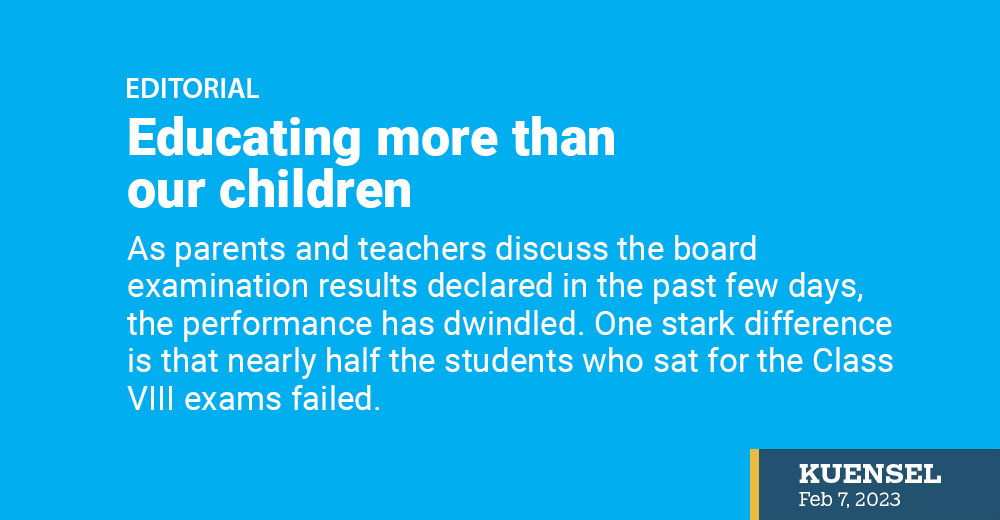As parents and teachers discuss the board examination results declared in the past few days, the performance has dwindled. One stark difference is that nearly half the students who sat for the Class VIII exams failed. This has propped up the deteriorating quality of education issue yet again.
Our discussion on the quality of education in Bhutan seems to have started on the wrong note … that the quality of education is going down. Going down from where? On the other hand, is the standard satisfactory? Definitely not, and that is not a secret.
Is our education system relevant? That is a more complex issue but we know that an imported system cannot be relevant unless it is adapted to our own conditions. We are yet to do that effectively.
What we do know is that our education system can be improved and can be made more relevant. We also know that 50 years is not enough to build a mature education system. Considering our late start, our achievements have been remarkable.
We know that our teachers are working in over-populated classrooms with limited time to prepare for lessons. We also know that a number of teachers are not teaching because of their love for the profession but for the need of a job. They are also leaving for greener pastures.
But, today, as we focus on the quality of education, there appears to be two major advantages. There is incredible political will to raise our standards. Education is a priority of His Majesty The King and that is more than most other societies can hope for.
There is also more choice of candidates for the teaching profession, although this is something of a back-handed advantage in the face of looming unemployment. The glamour jobs like the civil service are saturated and candidates are looking further afield for professions.
What we also need is fresh and broader perspectives. A handful of recognised intellectuals in our society are as over-taxed as they are limited in terms of specialisation. We need expertise and the right ones.
Perhaps, most important of all, we need new ideas and policies to take in the context of our own changing society. Education cannot be aimed at teachers and students but at society as a whole. Our education system has the very difficult task of having to educate parents as well as students.
Our educationists complain that parents have a tendency to leave the entire upbringing of youth to schools and teachers. But this is partly because a generation of parents, who have grown up in rural Bhutan, do not know any better. Others are busy making a living as spiking annual inflation bites.
It is necessary, therefore, that strict conditions are applied to force parents to take part in school activities. Parents need to understand that archery, cards, K-drama, and movies must come second to our children.
The role of our parents in the education of their children cannot be overestimated.


